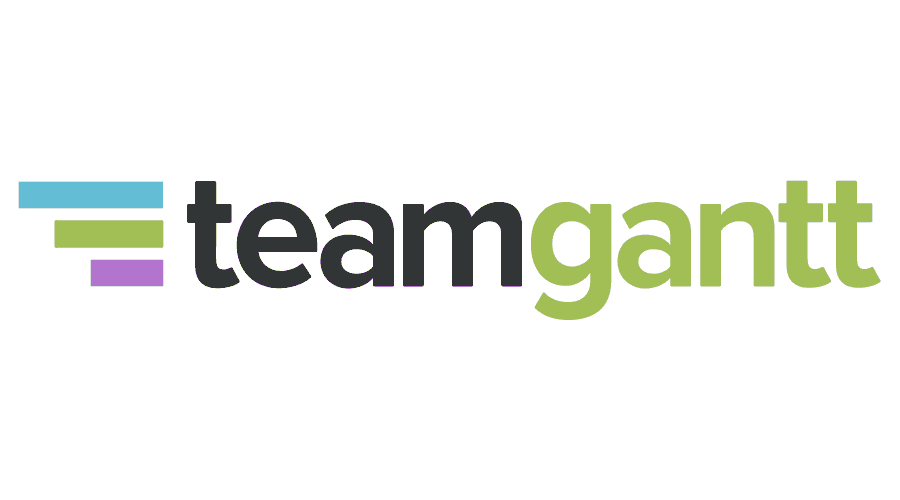Navigating the complex world of business development presents unique challenges, which is why we’ve gathered insights from CEOs and marketing experts. From personalizing sales outreach to specializing to stand out, discover the diverse experiences and strategies of 15 industry leaders as they share their hurdles and triumphs in business development.
- Personalize Sales Outreach
- Recruit Local Market Experts
- Turn Setbacks into Opportunities
- Leverage References for Acquisition
- Highlight the Cost of Inaction
- Transform Grief into Action
- Strategize Partner Engagement
- Differentiate with Unique Strengths
- Adapt to the Digital Revolution
- Engage Niche Marketing Channels
- Commit to Quality in Diversification
- Balance Analytics with User Design
- Plan for Rapid International Growth
- Embrace Debt as Growth Tool
- Specialize to Stand Out
Verizon Digital Ready: Providing Entrepreneurs the Skills and Knowledge They Need
Personalize Sales Outreach
One of the most significant business development challenges our company overcame was transforming our underperforming sales outreach system and processes. As I led this initiative, the focus shifted toward personalization and listening, transforming generic messages into meaningful conversations.
Guiding our team through this transformation, we learned that impactful communication goes beyond scripts; it’s about understanding and being understood. We revamped our strategies, making each email and voicemail not just a message but a bridge to deeper connections.
This journey highlighted the importance of genuine engagement. By making our outreach relevant and personal, we saw a significant improvement in our engagement rates and built relationships founded on trust. The experience taught us a valuable lesson: true success in business development is rooted not just in reaching out, but in creating real connections.
Michael Raviv, CEO, DCatalog
Recruit Local Market Experts
I’ve faced many challenges in business development over the years. One that stands out is when we were looking to expand into a new market but struggled to gain traction and build relationships with potential partners and customers. Despite doing extensive research and having a solid strategy, we just couldn’t seem to make meaningful connections in this new territory.
After hitting wall after wall, I realized we needed help from people who truly understood that regional market. So, I made it a priority to identify and bring on board some new team members from that area who could open doors for us. It wasn’t easy finding the right people, but once we did, it was a game-changer. Those valuable connections and insights allowed us to finally gain a foothold in that market.
The key lesson I learned is that you can’t always force your way into a new market alone. Sometimes you need to swallow your pride, recognize where your team has blind spots, and recruit people who can fill those gaps. Had I realized that sooner, it would have saved us time and headaches. But in the end, it strengthened our business for the long term, which is what matters most.
Arvin Khamseh, CEO, Sold Out NFTs
AI + Data + CRM = more sales and happier customers.
Start or grow your business with the #1 CRM. Salesforce now has AI tools that helps you connect with your customers in a whole new way.
Turn Setbacks into Opportunities
I once grappled with a daunting challenge when a major client suddenly decided to terminate our contract. This was a significant setback, but I turned it into an opportunity by conducting an in-depth analysis of our client relationships and identifying areas where we could improve. We revamped our client communication strategy, ensuring regular check-ins and addressing concerns promptly.
As a result, not only did we regain the terminated client, but we also improved our relationships with other clients, leading to overall growth in our business. The lesson here is that adversity can be a catalyst for positive change.
Gregory Rozdeba, CEO, Dundas Life
Leverage References for Acquisition
In the four-step solo agency setup, customer acquisition was the challenge I faced most of the time. To overcome this, I followed a simple outreach hack where I never asked for work but tried to ask for possible prospects in their network.
I asked Person A (with a huge network in the niche), “Hey, do you know anyone who needs help with ‘your service’? Here is my work profile.” In this way, I never asked them if they needed my services but asked for a reference. Now, if someone in their network needs similar services, you will get a warm lead that is guaranteed to convert because of Person A’s reference. They trust this person more than you. The key to this approach is your portfolio.
Shivam Sharma, Founder, Blogging Capital
Highlight the Cost of Inaction
One notable challenge in business development I faced was addressing the cost of inaction with prospects. To overcome this, I utilized a cost-of-inaction calculator during discovery calls and proposals, highlighting the tangible losses of delaying decisions.
This approach helped quantify potential missed opportunities, making the value of our solution more evident. It underscored the importance of acting swiftly to capitalize on business advantages, leading to more informed decision-making by prospects.
This strategy not only improved our conversion rates but also emphasized the strategic value of our offerings.
Bryan Philips, Head of Marketing, In Motion Marketing
Get a top-rated gantt chart for free, forever.
Discover why companies like Amazon, Netflix, Nike, and Intuit manage their projects with TeamGantt.
Transform Grief into Action
A significant challenge I encountered was addressing the profound impact of family violence, highlighted by the tragic loss of our colleague Jenni Robertson.
Jenni was our Head of Operations, and it was the week of her one-year anniversary when she and her son were murdered. I remember that Sunday night, I was preparing all the wonderful things I wanted to say to express my gratitude and how I planned to inform her of her promotion to COO. That following day, when she didn’t show up for meetings or answer the phone, I knew something was amiss. It was a gut-wrenching day that ended with her mom calling me at 4am to let me know the police were there and they had found the bodies. The grief and sorrow were deep, and the operational void was treacherous for the company.
I consulted a grief counselor first thing in the morning; luckily, she had time to talk and prepared me for our company all-hands, where I shared the news and let them know how we would support them through counseling, etc. The days and weeks following involved meeting with the community through tearful retellings of Monday’s events, expanding contractor hours, and bringing on extra contracts.
Around six weeks into the healing process, we started to transform our grief into action, and we collaborated with The SAFE Alliance to develop the SAFE Pledge. This initiative aims to educate and empower organizations in recognizing and supporting individuals affected by family violence.
By establishing resources, training, and comprehensive policies, we strive to foster a safer environment, both within the workplace and the broader community. This experience taught us the importance of awareness and proactive support in combating the often hidden crisis of family violence.
Douglas Ferguson, President, Voltage Control
Strategize Partner Engagement
One of the biggest challenges in business development is finding the right person to talk to at the right time. The way we approach this challenge at Plus is by approaching key strategic partners with a multi-step plan.
First, we identify the people in our network who can connect us to potential partners. Then, we present our pitch to our contacts and ask for feedback on the pitch, and more importantly, an ask to help us figure out how to talk to them next. From there, we figure out the best bottom-up and top-down approaches to reach the right decision-maker at the right time, when they hear about us from their peers and managers, as well as from people on their team.
Differentiate with Unique Strengths
My role at Brilliant Law Firm has often required not just legal expertise but also a keen sense of business development, particularly when addressing the challenge of differentiating our services in a crowded market.
A notable example was our innovative approach in handling the Measure H litigation, where we were the only firm that saw a path to victory against a tax imposed unfairly on commercial and industrial property owners. Through this experience, we demonstrated our unique value proposition—not just as litigators, but as strategic advisors who successfully navigate complex legal and tax challenges against the odds. This case served as a cornerstone, not only in reaffirming our expertise in tax and trust law but also in solidifying our reputation as a firm capable of handling and winning complex cases other firms might not even consider.
The lesson here transcends the legal industry; it’s about identifying and leveraging your unique strengths to overcome obstacles in business development. Our firm’s commitment to taking on challenging cases and our strategic decision to delve into areas others might avoid have significantly contributed to our growth and differentiation.
This approach has not only brought in clients looking for innovative legal solutions but also set a precedent that encourages our team to persistently think outside the box. This mindset, coupled with our proven track record, continually fuels our firm’s development and strengthens our position in the market.
David Brillant, Founder, Brillant Law Firm
Subscribe to The Start, the Newsletter Built for Entrepreneurs
Adapt to the Digital Revolution
In the early 2000s, our property brokerage was confronted with the digital revolution. Traditional methods were losing ground, so we needed to face it head-on and pivot swiftly. The biggest challenge with that adaptation was integrating all the emerging digital methods for marketing, client relations, and sales, etc.—methods where best practice was still far from settled—without losing our personal touch.
So, we dove headfirst into learning the ins and outs of emerging online business trends, invested in the latest digital platforms, and trained our team to blend the tech with the personal service we’d come to be known for. Adopting new digital tools was only half the battle; we had to completely reshape our mindset to be agile and data-driven. The main takeaway for us was that adaptability isn’t just a strategy; it’s a survival trait.
Teresha Aird, Chief Marketing Officer & HR Lead, Offices.net
Engage Niche Marketing Channels
Identifying new marketing channels has always been a challenge. In business-to-business sales, there tend to be fewer places to go. In addition, a scientific software product does not lend itself to most social platforms and influencer-driven marketing.
To get past the noise, we had to ditch conventional wisdom and head for very niche community engagement. Identifying the right channels is still very hard, but we do better when we run away from the mass channels.
Trevor Ewen, COO, QBench
Commit to Quality in Diversification
One significant challenge I’ve encountered in the realm of automotive services, particularly at Automobilia Auto Salon, was diversifying our offerings to cater to a broader market while maintaining the high quality we’re known for. Initially, our focus was mainly on detailing services, but we recognized the need to expand into areas like ceramic coatings, custom wheels, and paint protection films to attract a wider clientele. The challenge was not just in offering these services but ensuring they met the same standard of excellence our customers had come to expect.
To overcome this, we invested heavily in training and equipment, ensuring our team was well-equipped with the latest techniques and knowledge in these new service areas. Moreover, we engaged in rigorous testing of various products to find those that met our high standards for durability, aesthetics, and value. This meticulous approach allowed us to confidently expand our service offerings, knowing they adhered to our benchmark of quality. The lesson here is clear: diversification in business requires not just a vision for growth but a steadfast commitment to maintaining quality, which ultimately strengthens customer trust and loyalty.
Alex Jones, Owner, Automobilia Auto Salon
12 Essential Steps in Choosing and Building a Side Hustle
Balance Analytics with User Design
One challenge that proved fairly tough to overcome was translating our ambitious idea into reality. Ideas are simple; execution is the tough part. The crux of our vision was to empower individuals with limited technical expertise to harness the power of data analysis for informed decision-making through an app that could seamlessly integrate with Shopify, making your average e-commerce manager a data guru.
The initial hurdle was grappling with the complexity of data interpretation. We realized that presenting raw data wasn’t enough. We needed to distill it into actionable insights. It involved developing algorithms that could crunch the numbers and provide meaningful recommendations in a comprehensible manner. It wasn’t just about data; it was about transforming it into practical advice for our users.
Simplifying the process without compromising effectiveness became the next mountain to climb. We aimed to streamline the user experience, making it intuitive and accessible. This included rigorous testing and user feedback loops to ensure that the platform was user-friendly while maintaining its analytical prowess. It wasn’t about dumbing down the data but smartening up the interface.
Through this journey, we learned the invaluable lesson that technology should serve as a bridge, not a barrier. Overcoming this challenge required a delicate balance between sophisticated analytics and user-centric design.
Erman Kuplu, CEO, Analyzify
Plan for Rapid International Growth
Keeping up with the pace of international expansion during and after COVID-19 due to a sharp increase in demand for hybrid workforce management solutions sounds like a good problem to have. But in reality, it meant having to put our recruitment team into overdrive to hire the geographical specialists who would be able to help us meet the business obligations that were coming in from left, right, and center.
A lesson learned from this is to always have a plan for rapid growth, even if that growth isn’t signposted in the market, because when it does come, you don’t want to be caught flat-footed. I’d go so far as to say you should also have a plan for a major market contraction outside of normal factors.
Dragos Badea, CEO, Yarooms
Embrace Debt as Growth Tool
Accepting the inevitability of business debt was a lesson I learned the hard way. Always a frugal sort, I eschewed taking out loans in the early days, certain that I could make my budget work without them.
It was a big mistake, and I cringe looking back on opportunities missed because I was afraid to take a financial chance.
Bringing in an advisor who specialized in small- and mid-sized firms really helped. They broke the numbers down for me in an easy-to-understand way, and I saw that growing without debt wasn’t an admirable goal; in fact, it was impossible.
Taking on debt is the reality of every successful firm, and there are ways to do it smartly. Credit is a tool, and if I’d understood that initially, instead of viewing it as solely a liability, I would have achieved more, earlier.
Linn Atiyeh, CEO, Bemana
Specialize to Stand Out
In the early days of my digital marketing agency, one notable challenge we faced was the sheer saturation of the market. We were a small fish in a big pond, and it was difficult to get our voice heard above the noise. The turning point for us came when we decided to specialize in helping small businesses enhance their online credibility.
This meant not only refining our service offerings but also educating our target market on the importance of a strong digital presence. We overcame this challenge by doubling down on content marketing, producing valuable resources that positioned us as thought leaders in our niche. Through webinars, e-books, blog posts, and speaking engagements, we provided actionable insights that truly helped our audience.
The lesson learned was clear: Carving out a unique space in a crowded market requires not only understanding your customers’ needs but also committing to adding real value to their businesses. This approach helped us build trust, loyalty, and a distinct brand identity that set us apart.
Brett Farmiloe, CEO, Featured
Image by rawpixel.com on Freepik








